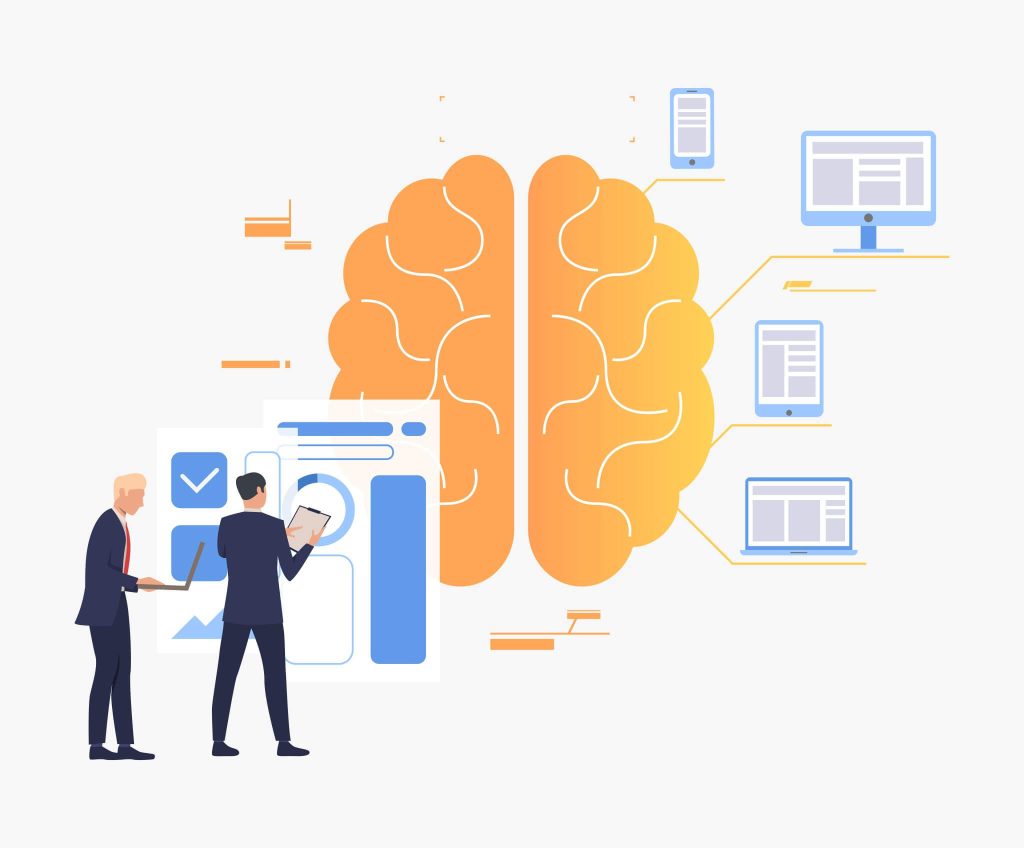Introduction
In a world where technology is evolving faster than ever, one force is driving the industry’s transformation: artificial intelligence (AI). AI\’s impact isn\’t limited to a single industry; it\’s creating ripples in a variety of industries, including the tech sector. Join us as we investigate how artificial intelligence is altering the technology environment.
Understanding Artificial Intelligence
Definition of AI: AI refers to the development of computer systems that can perform tasks that typically require human intelligence. These include learning, reasoning, problem-solving, perception, and language understanding.
Types of AI: AI can be broadly categorized into Narrow AI and General AI. Narrow AI is designed for a specific task, while General AI has human-like cognitive abilities.
Key AI technologies and concepts: We\’ll explore machine learning, neural networks, and natural language processing (NLP) as the driving forces behind AI\’s growth.
AI in the Technology Industry
The Convergence of AI and Technology: The technology industry is experiencing a profound transformation as it embraces artificial intelligence.
This synergy between AI and tech is not just a partnership; it\’s a dynamic fusion that\’s redefining the boundaries of what\’s possible.
AI is the enabler of tech innovation, enhancing existing products and services and giving birth to entirely new ones.
The coexistence of AI and technology is altering how we work, play, and live.
We\’re witnessing a future where smart homes, self-driving cars, and intelligent assistants are becoming the norm, thanks to this convergence.
Historical Perspective: To appreciate the significance of AI\’s role in the tech sector, we should take a look at the journey thus far.
Over the years, AI has evolved from a conceptual idea to a practical technology with real-world applications.
For instance, in the early days, AI struggled to recognize handwriting. Today, AI-powered systems can not only decipher handwriting but also understand spoken language, transcribe text, and provide insightful recommendations.
This evolution is paving the way for AI-driven technologies to become ubiquitous in our lives.
The Role of AI in Tech Innovation: AI has become a catalyst for innovation, pushing the boundaries of what technology can achieve.
AI Applications in Tech: Dive into real-world examples, such as:
- Hardware Optimization: AI is used to design more efficient computer hardware components, optimizing power consumption.
- Software Development and Testing: AI tools help automate coding and identify bugs and vulnerabilities.
- Cybersecurity: AI aids in identifying and mitigating security threats in real time.
- Cloud Computing: AI-driven algorithms optimize resource allocation in cloud environments.
- IoT and Smart Devices: Devices like smart thermostats and voice assistants use AI for enhanced user experiences.
- Customer Support and Chatbots: AI chatbots provide instant, round-the-clock customer assistance.
Transformative Impacts
Efficiency and Productivity Improvements: AI automates routine tasks, streamlines workflows, and minimizes human error. For instance, AI-powered robots in manufacturing have increased efficiency, allowing for 24/7 production.
Enhanced User Experiences: AI is personalizing the user experience. For example, streaming platforms like Netflix use AI algorithms to recommend content tailored to individual preferences.
Cost Reduction and Resource Optimization: AI-driven predictive maintenance minimizes downtime in industries like aviation, saving both time and money.
Data-Driven Decision Making: Businesses use AI to make sense of massive data sets, enabling data-driven decisions that enhance competitiveness.
Market Trends and Competitive Advantages: Tech companies employ AI to analyze market trends and identify opportunities for innovation, staying ahead of the competition.
Challenges and Concerns
- Ethical Considerations: AI can raise ethical dilemmas, such as the use of facial recognition technology and surveillance. The line between convenience and privacy is thin.
- Job Displacement and Workforce Adaptation: While AI creates job opportunities, it also displaces some traditional roles, necessitating workforce adaptation and upskilling.
- Data Privacy and Security: As AI relies on vast datasets, securing this data from breaches and misuse is paramount.
- Recent examples like data leaks at major tech companies underscore the need for vigilance.
- Bias and Fairness in AI: AI models can inherit biases from their training data, which may lead to unjust discrimination in areas like hiring or lending.
- Regulatory and Legal Issues: Policymakers worldwide are grappling with regulating AI to ensure its responsible use and to manage potential risks.
The Future of AI in Technology
Predictions and Trends: The future of AI in technology promises a continued and accelerated integration of artificial intelligence into our daily lives.
As we look ahead, several key predictions and trends stand out. One of the most exciting prospects is the rise of edge computing.
Edge computing involves processing data closer to its source, reducing latency, and improving efficiency.
With the proliferation of IoT devices, edge computing, powered by AI, will allow these devices to perform more processing locally, enhancing their real-time responsiveness and reducing the burden on central data centers.
Additionally, AI is set to play a pivotal role in healthcare. Advanced AI-driven solutions are being developed to diagnose diseases, analyze medical images, and assist in drug discovery.
In the not-so-distant future, we can expect more personalized and precise healthcare, where AI algorithms will help doctors make faster, more accurate diagnoses and treatments.
AI\’s Role in Tech\’s Evolution: AI\’s impact on technology goes beyond being an auxiliary force; it\’s now a driver of innovation and evolution.
In the coming years, AI will influence how technology is designed and developed.
AI-driven design tools, for example, will help engineers create products that are more efficient, environmentally friendly, and user-centric.
Think about the automotive industry, where AI is accelerating the development of autonomous vehicles, which not only redefine transportation but also have the potential to reduce accidents and energy consumption.
In the software realm, AI will continue to revolutionize app development. AI-driven coding assistants will help developers write code faster and more accurately, reducing development times and errors.
This automation will also lead to increased accessibility, allowing more people to participate in the software development process, regardless of their coding skills.
Potential Breakthroughs and Innovations: Keep an eye on several exciting areas where AI is poised to make significant breakthroughs.
Quantum computing, for instance, is on the horizon. Quantum computers, powered by AI, have the potential to solve problems that are currently beyond the reach of classical computers.
This could revolutionize fields like cryptography, drug discovery, and climate modeling.
AI ethics is another emerging area. As AI becomes more integrated into our lives, the need to address ethical concerns such as privacy, bias, and transparency becomes critical.
The development of AI ethics frameworks and regulations will shape how AI is implemented, ensuring it aligns with human values and societal norms.
Sustainability is a key focus, with AI playing a role in optimizing resource use, reducing waste, and monitoring environmental conditions.
For example, AI is being used to manage and conserve energy in smart grids and reduce emissions in transportation.
These efforts are essential in combating climate change and ensuring a more sustainable future.
Conclusion
In conclusion, artificial intelligence is a driving force behind the transformation of the technology industry.
AI is at the forefront of tech innovation, from optimizing hardware to enhancing user experiences and enabling data-driven decisions.
However, it\’s not without its challenges, including ethical considerations, job displacement, and regulatory concerns.
Embracing AI while being mindful of these challenges will be crucial as we navigate the technology industry\’s future.






